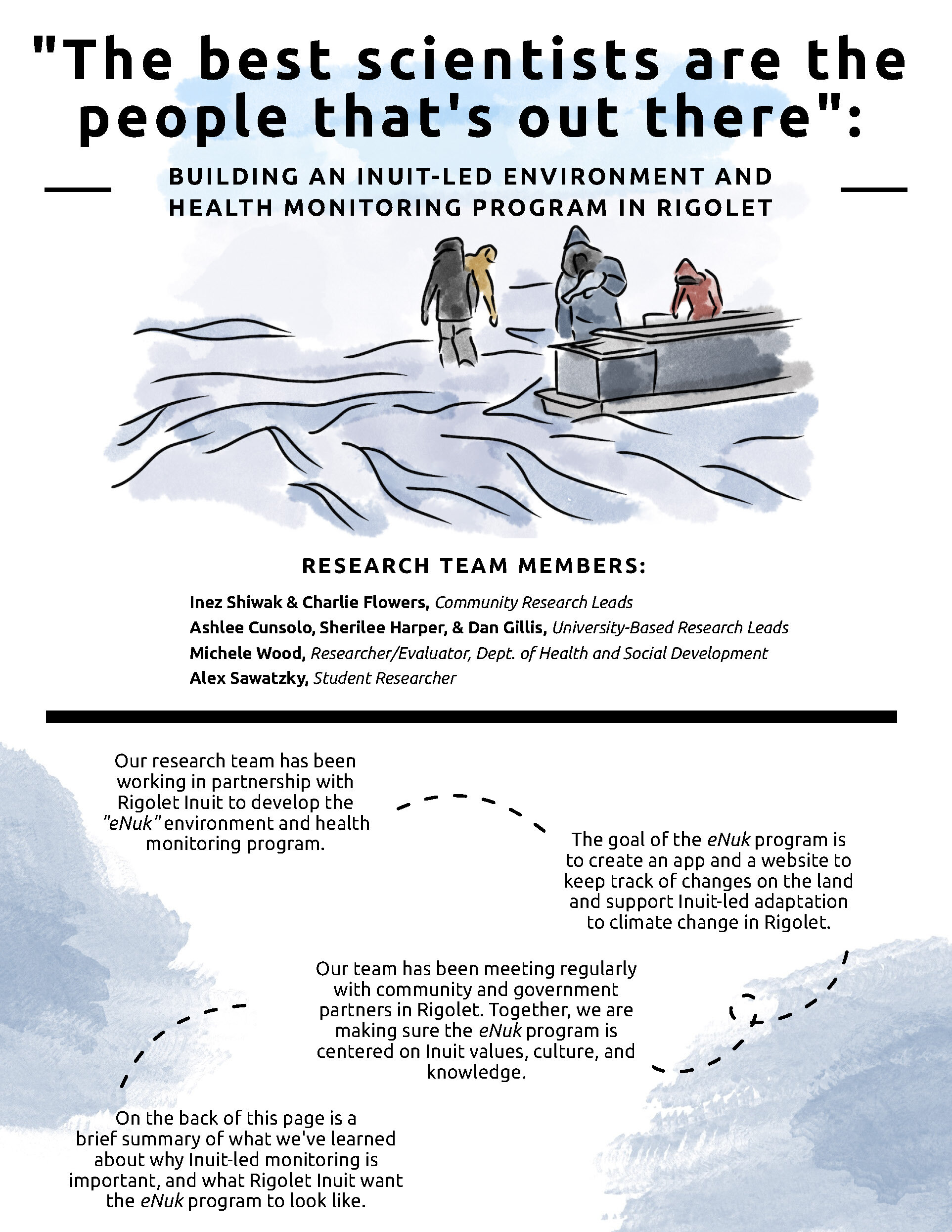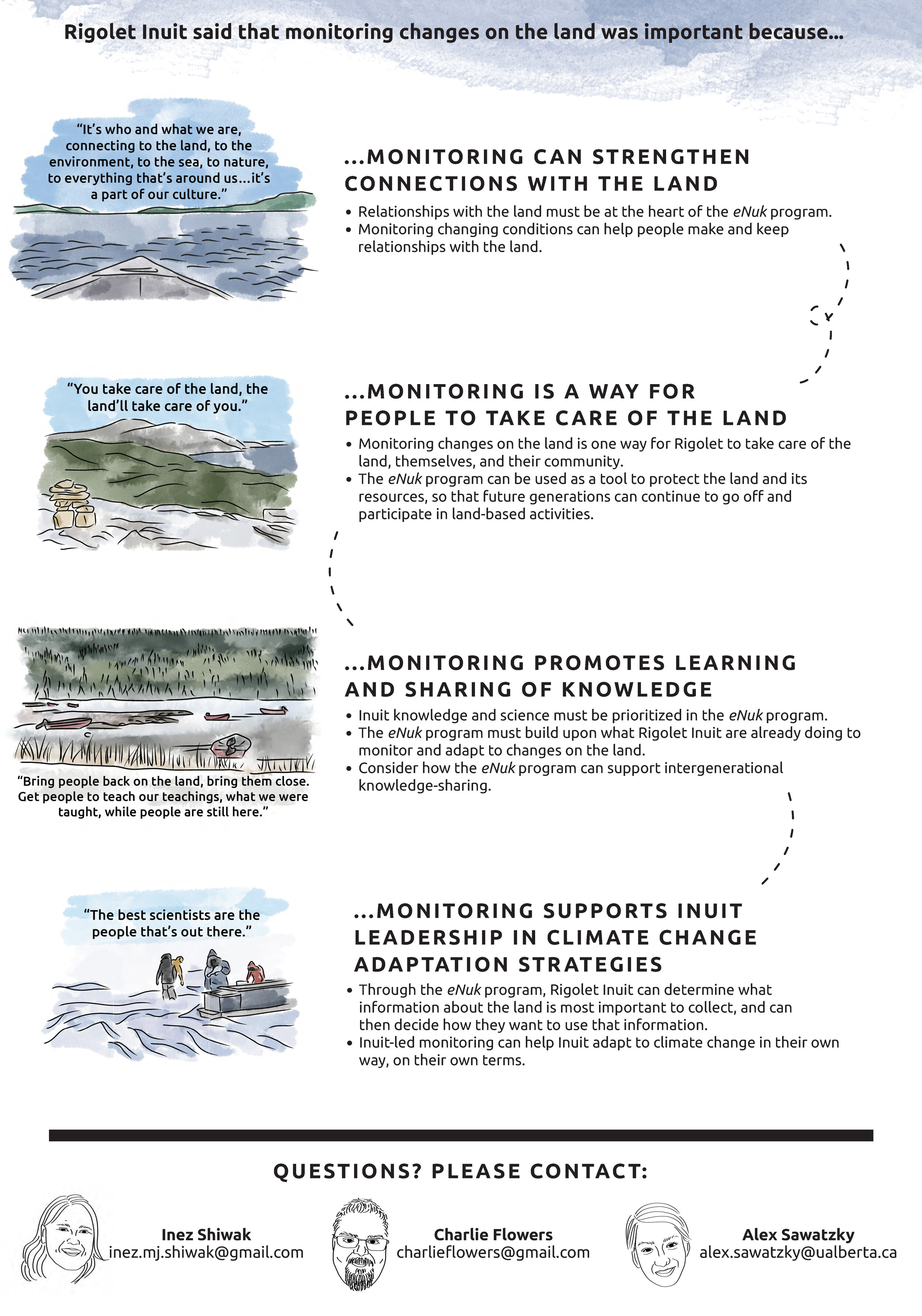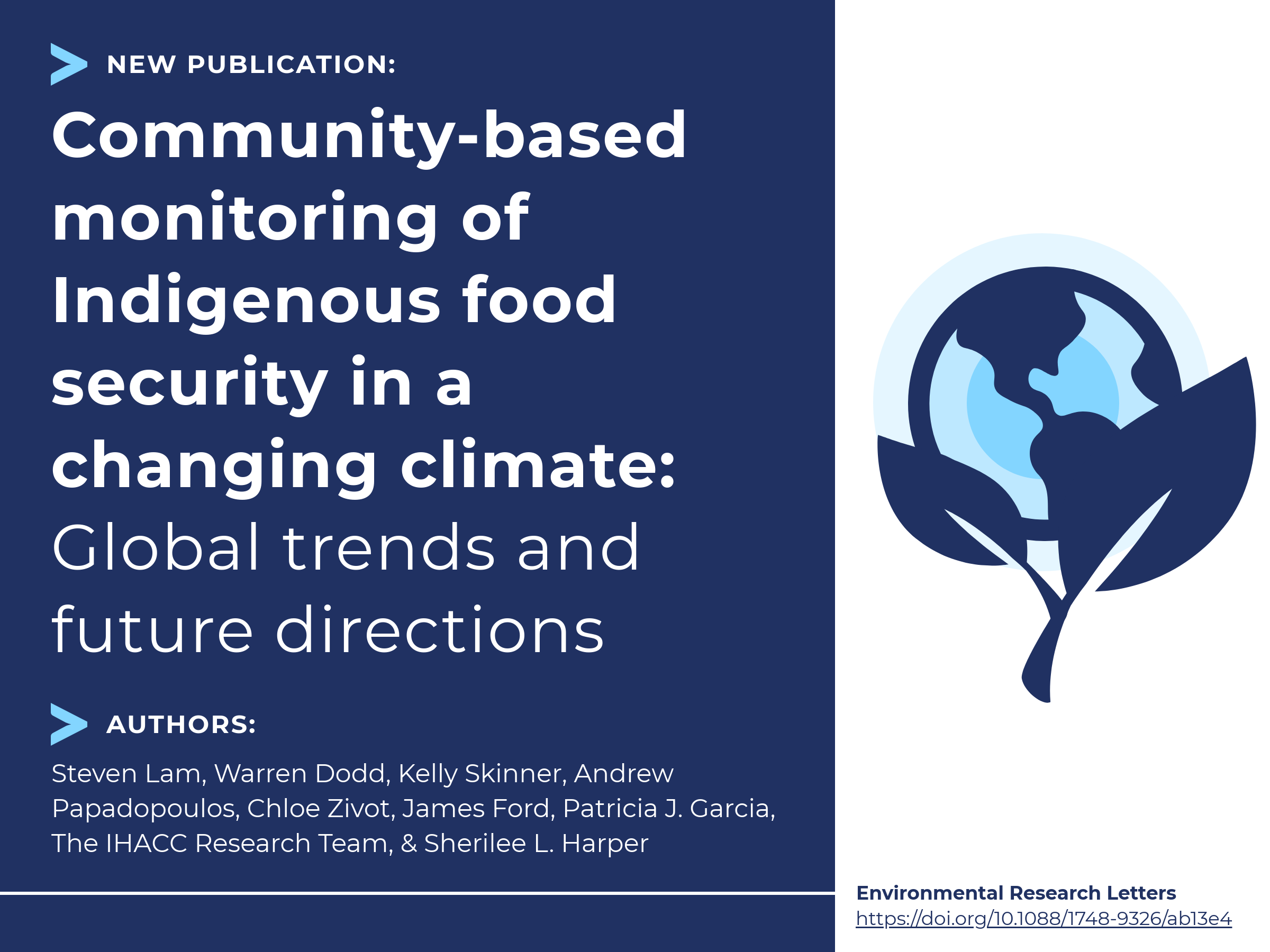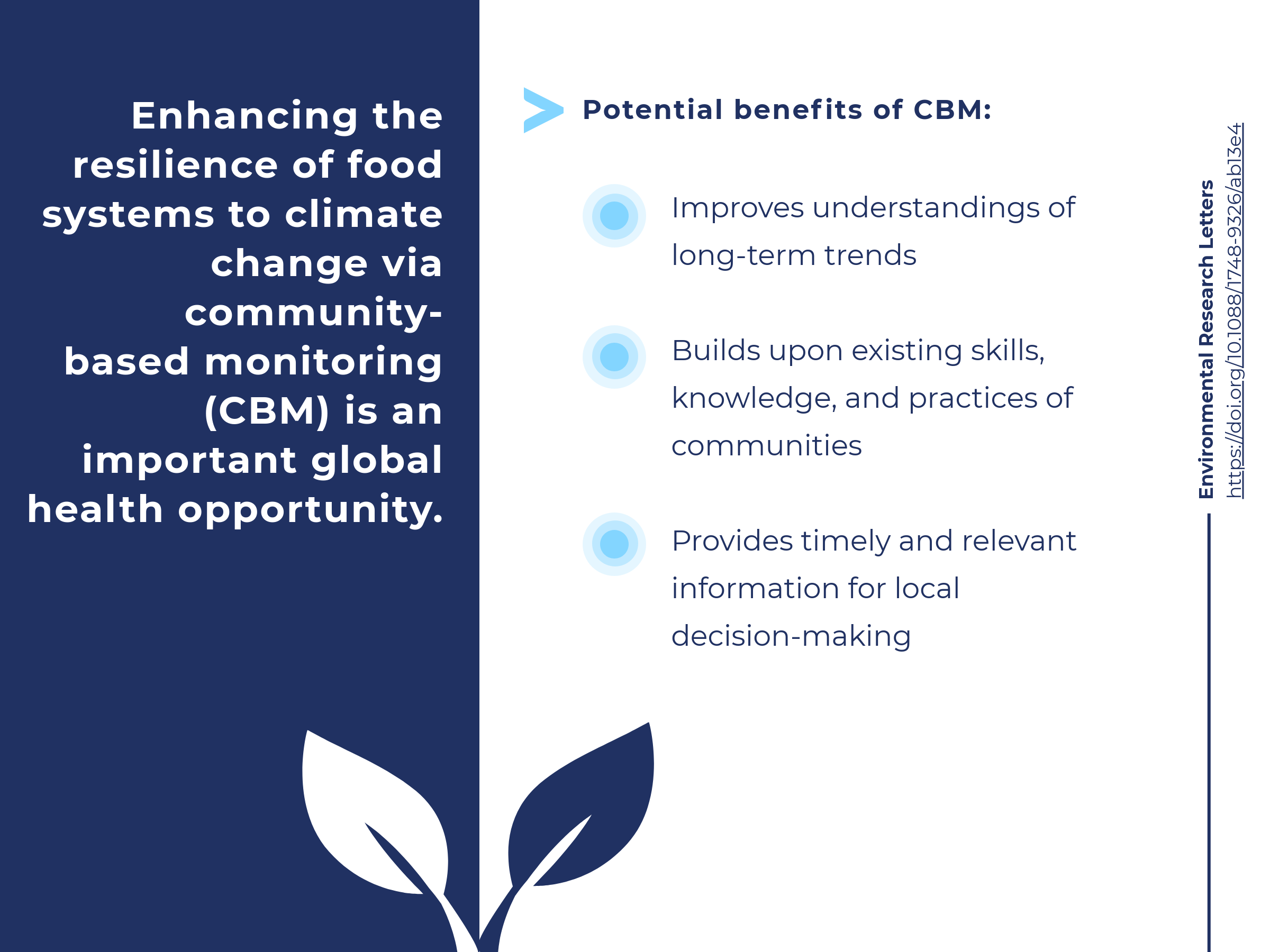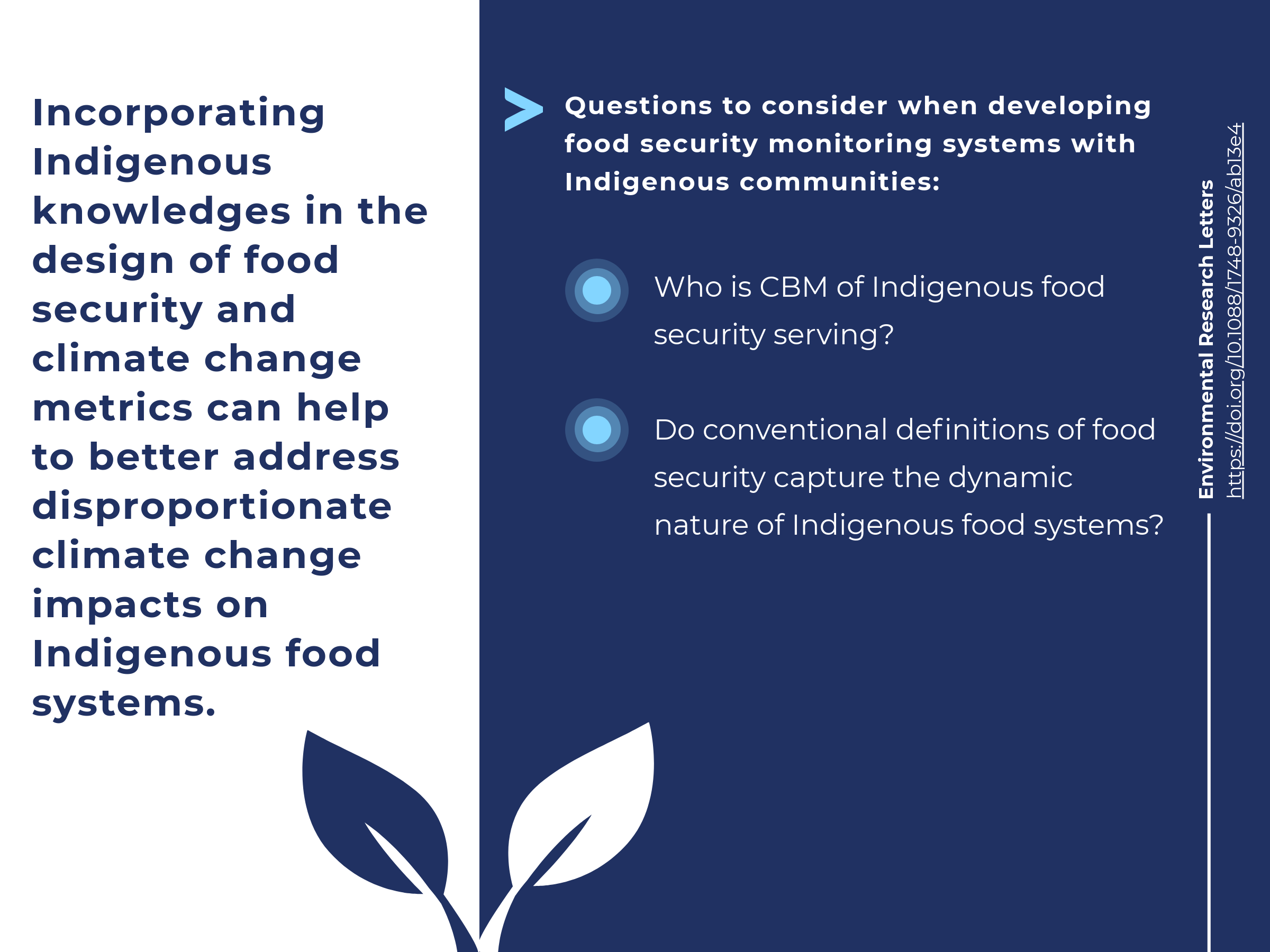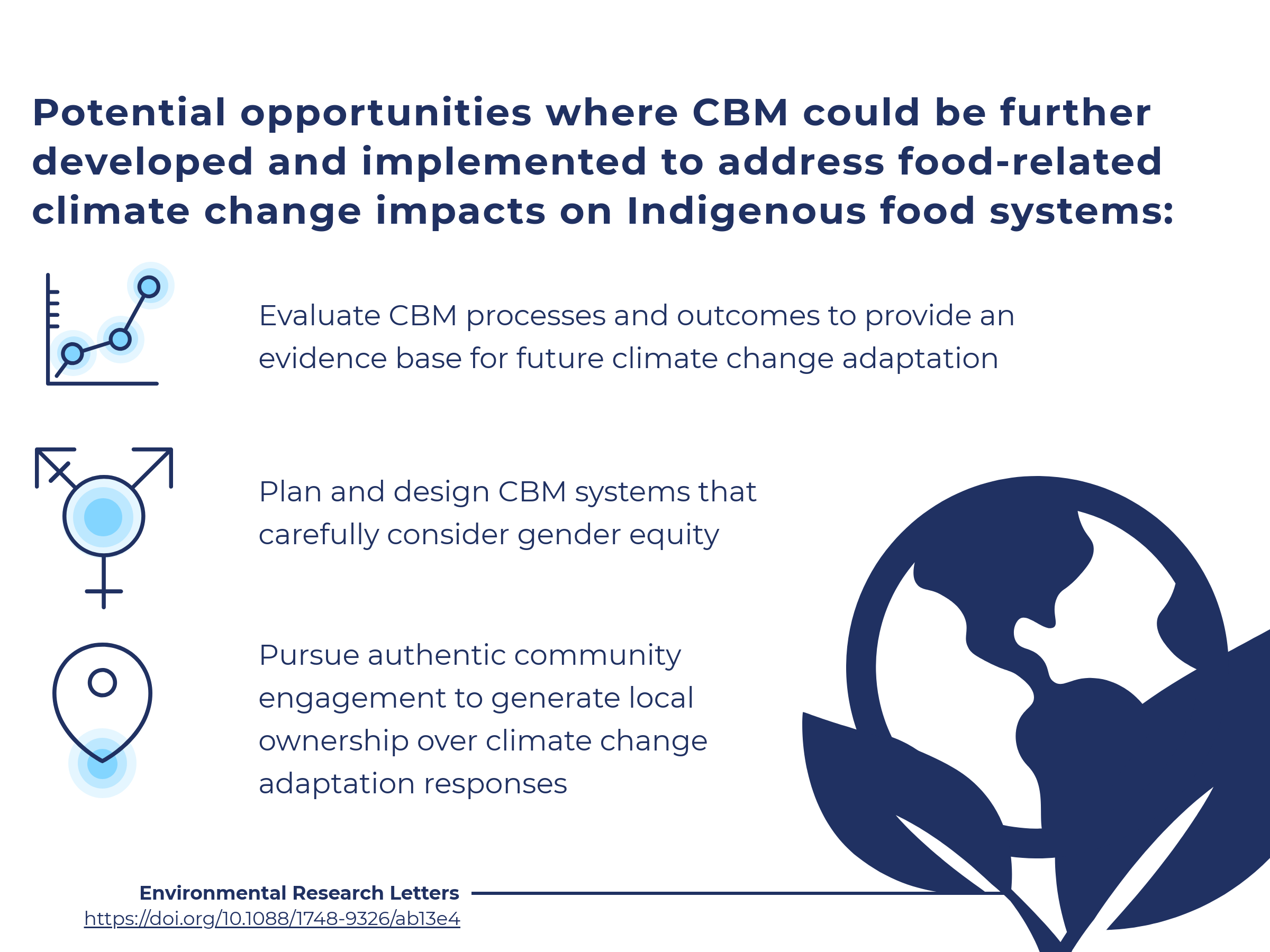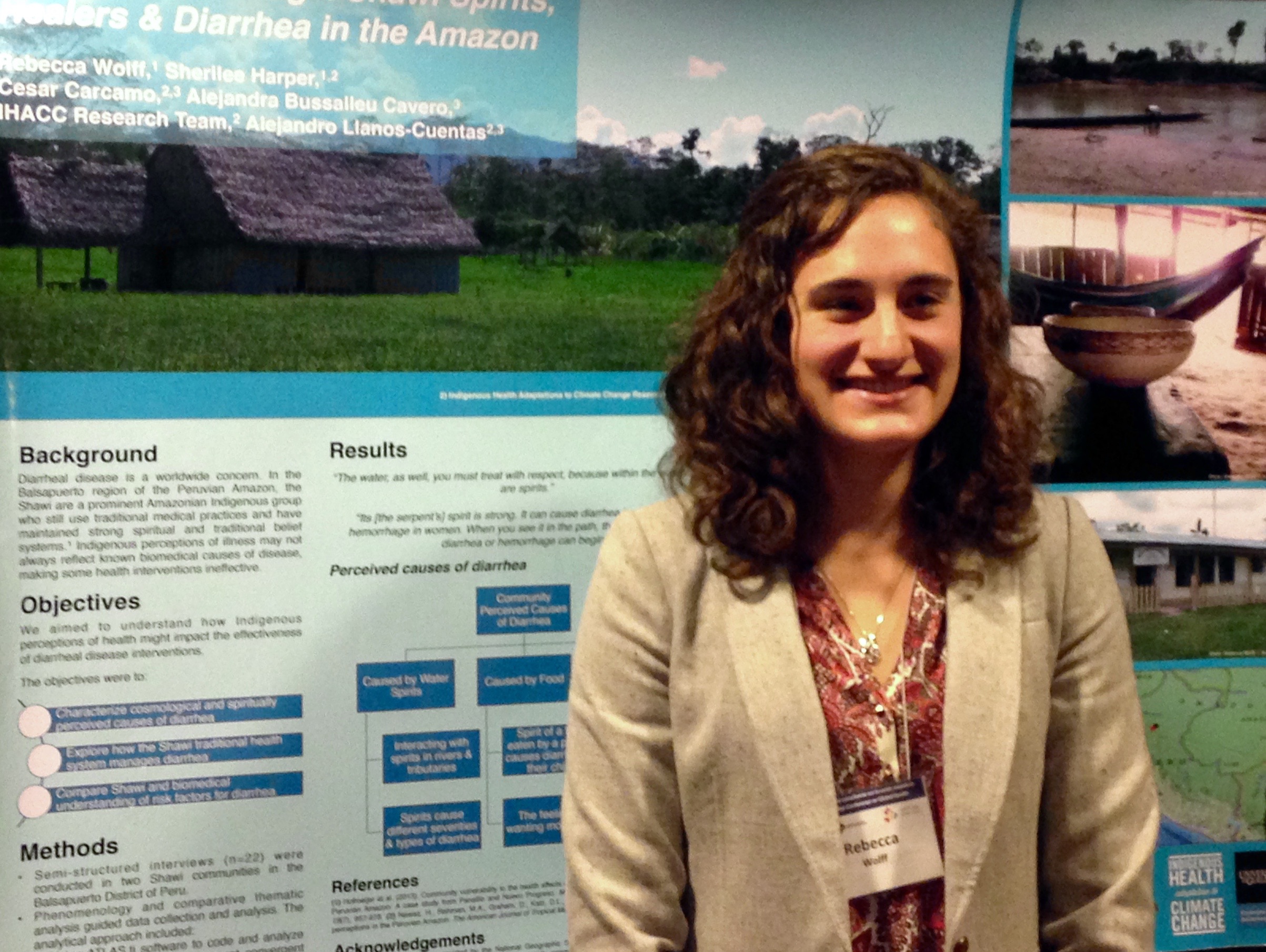Abstract
Climate change is expected to exacerbate existing food security challenges, especially in Indigenous communities worldwide. Community-based monitoring (CBM) is considered a promising strategy to improve monitoring of, and local adaptation to climatic and environmental change. Yet, it is unclear how this approach can be applied in food security or Indigenous contexts. The objectives of this paper are to: (1) review and synthesize the published literature on CBM of Indigenous food security; and, (2) identify gaps and trends in these monitoring efforts in the context of climate change. Using a systematic search and screening process, we identified 86 published articles. To be included, articles had to be published in a journal, describe a CBM system, describe any aspect of food security, and explicitly mention an Indigenous community. Relevant articles were thematically analyzed to characterize elements of CBM in the context of climate change. Results show that the number of articles published over time was steady and increased more than two-fold within the last five years. The reviewed articles reported on monitoring mainly in North America (37%) and South America (28%). In general, monitoring was either collaborative (51%) or externally-driven (37%), and focused primarily on tracking wildlife (29%), followed by natural resources (16%), environmental change (15%), fisheries (13%), climate change (9%), or some combination of these topics (18%). This review provides an evidence-base on the uses, characteristics, and opportunities of CBM, to guide future food security monitoring efforts in the context of climate change.
Citation
Lam, S., Dodd, W., Skinner, K., Papadopoulos, A., Zivot, C., Ford, J., Garcia, P.J., IHACC Research Team, Harper, S.L. (2019). Community-based monitoring of Indigenous food security in a changing climate: Global trends and future directions. Environmental Research Letters. 14: 073002. Click here to access the article (free open-access)
